As the demand for IT professionals increases, employers are noticing a lack of certified candidates. A recent Everest Group survey revealed that 86% of enterprises consider the IT talent shortage to be a key barrier to achieving their hiring goals, citing an acute shortage in qualified, skilled candidates and a lack of technical skills in the current workforce. Employers are looking for candidates with IT certification that validate their skills and expertise.
Whether you’re fresh into your IT career or a seasoned professional, attaining an IT certification can separate your resume from the stack and get you hired fast. The certification process is unique for each IT certification, so it is crucial to prioritize those that are most in-demand to improve your standing among the IT-professional candidate pool. In this blog, Blue Signal breaks down various in-demand certs by the skills tested, the certification process, and the benefits that set each accolade apart.
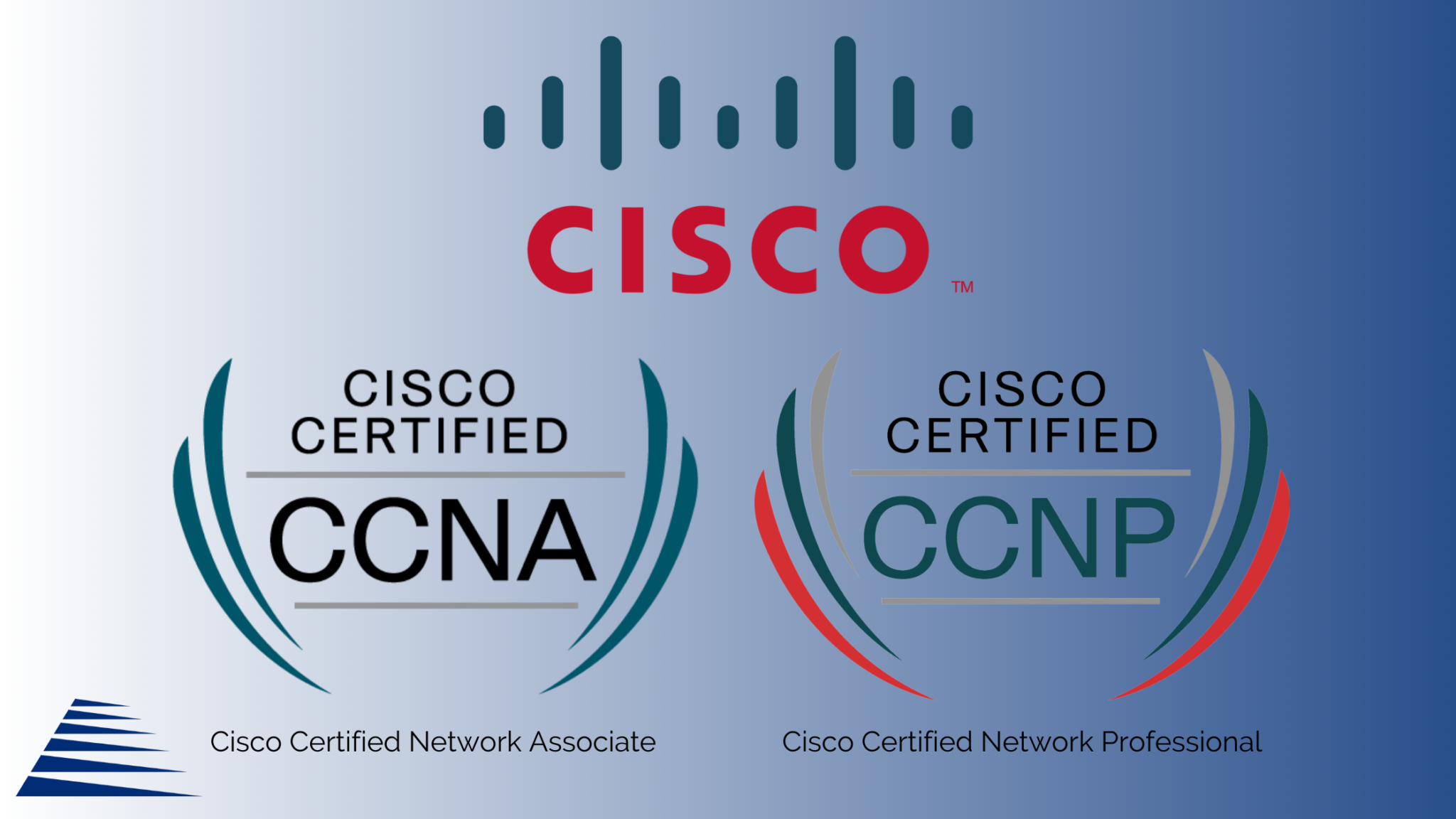
Cisco Certified Network Associate (CCNA)
According to Cisco, 78% of technology executives and managers consider technical certifications a critical success factor. The Cisco Certified Network Associate (CCNA) certification covers a broad range of fundamentals for IT careers, based on the latest networking technologies, software development skills, and job roles. As the most widely recognized and respected associate-level IT certification, the CCNA certification is designed to prove your skills in the ever-changing landscape of IT.
CCNA IT Certification At-A-Glance:
Skills tested: The Cisco Certified Network Associate certifications tests skills relating to network fundamentals, network access, IP connectivity, IP services, security fundamentals, automation, and programmability.
Certification process: To attain the CCNA certification, candidates must complete the 200-301 CCNA exam: Implementing and Administering Cisco Solutions. The exam is 120 minutes long and costs $300 USD. The exam is available in English and Japanese. The CCNA certification is valid for three years.
Benefits: The CCNA certification shows employers that candidates have mastered the essentials in network security, automation, and programmability, while being the most respected certification in the industry. According to IT recruiter Andrew Leeson, “A CCNA certification is still the most desired IT certification, and viewed highly favorably by organizations. This IT certification also tends to lead to higher salaries for IT professionals.”
Jobs you can get with the CCNA certification:
- Network Administrator
- Systems Administrator
- Network Analyst
- Network Design Engineer
- Network Infrastructure Engineer
- Unified Communications Engineer
- Solutions Design Engineer
- Cloud Engineer
- NetSuite Administrator
Why Get a CCNP Certification?
Recruiter Insight — Joanna Kimionakis, Senior Executive Recruiter
“Having this IT certification [shows] you have studied the newest, up-to-date technologies, and passing the [exam] confirms that you are truly knowledgeable in WAN, LAN, networking solutions, switching, and security. It validates your education and/or experience. Many employees require this IT certification, [so] having this on your resume will surely help you stand out in a crowd of applications. For entry level candidates, having a CCNA could help get their foot in the door!”
Cisco Certified Network Professional (CCNP)
Cisco’s professional level certifications validate your overall knowledge in networking and a concentration of your choosing - enterprise, data center, security, service provider, or collaboration. The CCNP certification demonstrates your networking abilities while showcasing a technical focus in a two-part exam.
CCNP IT Certification At-A-Glance:
Skills tested: The CCNP certification tests candidates’ core knowledge of networking solutions and industry-specific topics in their area of concentration.
Certification process: The CCNP certification process includes two exams; a core exam and a concentration exam of candidates’ choice. The core exam, 350-401 ENCOR, is 120 minutes long and costs $400 USD. The concentration exams are 90 minutes long and cost $300 USD each. Similar to the CCNA certification, both exams are available in English and Japanese.
Benefits: Recipients of the CCNA receive both a core certification and a specialist certification in the concentration area candidates chose - earning three certifications in one. Upon passing the core exams, the CCNP certification also serves as a qualifying exam for the Cisco Certified Internetwork Expert (CCIE) certification. Compared to other IT certifications, the CCNP is the most customizable and allows you to showcase your specialized skills.
Jobs you can get with a CCNP certification:
- Network Engineer
- Infrastructure Engineer
- Network Analyst
- VoIP Engineer
- Systems Engineer
- Network Design Engineer
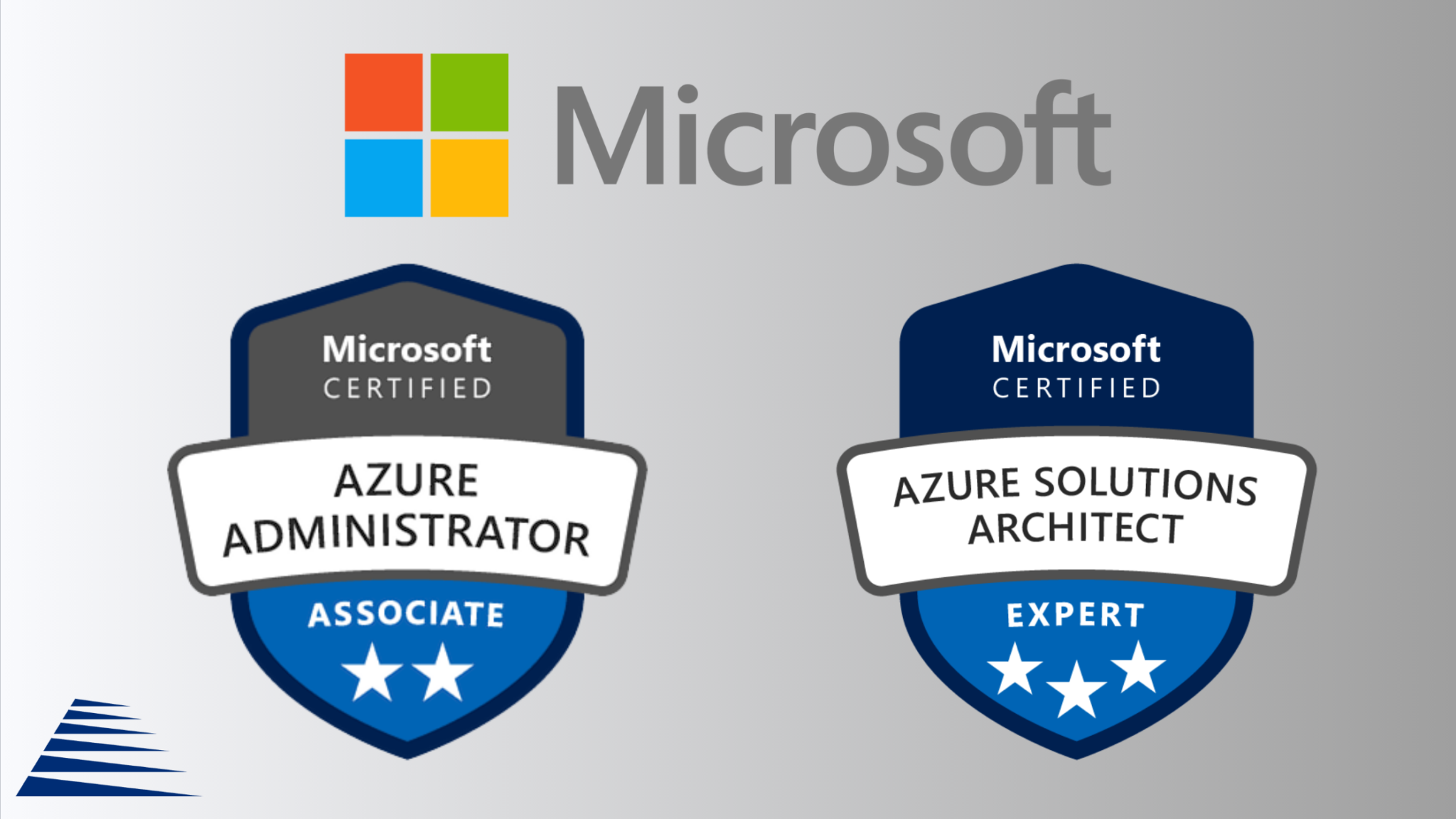
Microsoft Certified: Azure Administrator Associate
The Microsoft Certified: Azure Administrator Associate certification validates skills regarding implementing, managing, and monitoring identity, governance, storage, compute, and virtual networks in a Microsoft Azure cloud environment. For this IT certification, it would be beneficial for the candidate to have at least six months of experience administering Azure prior to testing. Having a strong understanding of Azure services, workloads, security, and governance will set you up for the best success.
Microsoft Certified Azure Administrator Associate IT Certification At-A-Glance:
Skills tested: The Microsoft Certified Azure Administrator Associate certification validates competency in managing Azure identities and governance; implementing and managing storage; deploying and managing Azure compute resources; configuring and managing virtual networking; and monitoring and backing up Azure resources.
Certification process: To obtain this IT certification, candidates must pass Exam AZ-104. This exam costs $165 USD and is available in English, Chinese (Simplified), Korean, and Japanese. To prepare for the exam, candidates are encouraged to take free, online study modules to gain the skills needed to become certified. Starting in June of 2021, Azure certifications are valid for one year and then must be renewed annually online for free.
Benefits: According to Fortune, 57% of Fortune 500 companies are using Microsoft Azure. As cloud computing continues to dominate the information technology industry, this IT certification will prove that candidates have the technical expertise to get the job done.
Jobs you can get with the Microsoft Certified Administrator Associate certification:
- Cloud Architect
- Azure Developer
- Solution Architect
- Azure Architect
- Cloud Engineer
- Cloud Delivery Architect
- Azure Engineer
- Azure DevOps Engineer
- Cloud Account Manager
- System Engineer
Microsoft Certified: Azure Solutions Architect Expert
According to Microsoft, the Microsoft Certified: Azure Solutions Architect Expert certification is for candidates who have subject matter expertise in “designing and implementing solutions that run on Microsoft Azure, including aspects like compute, network, storage, and security.” Candidates pursuing this certification will be responsible for advising stakeholders and translating business requirements into secure, scalable, and reliable cloud solutions. As an expert level IT certification, the Azure Solutions Architect certification requires advanced experience and understanding of IT operations, Azure administration, and DevOps processes.
Microsoft Certified: Azure Solutions Architect Expert IT Certification At-A-Glance:
Skills tested: The Azure Solutions Architect certification assesses the ability to implement and monitor an Azure infrastructure; implement management and security solutions; implement solutions for apps; implement and manage data platforms; design monitoring; design and identity security; design data storage; design business continuity; and design infrastructure.
Certification process: The Azure Solutions Architect expert requires candidates to pass two exams — Exam AZ-303: Microsoft Azure Architect Technologies, and Exam AZ-304: Microsoft Azure Architect Design. Both exams are available in English, Japanese, Chinese (Simplified), and Korean and cost $165 USD. Free, online study modules are also available for preparation for these exams. Like the Azure Administrator Associate certification, this certification is valid for one year and then must be renewed annually online for free.
Benefits: The Azure Solutions Architect Expert certification validates candidates’ ability to accomplish technical tasks. Candidates that earn the Expert certification are more qualified to hold senior positions, such as Senior Azure Engineer or Senior Cloud Solutions Architect, which may result in a higher pay grade.
Jobs you can get with Microsoft Certified: Azure Solutions Architect Expert:
- Senior Azure Solutions Architect
- Cloud Solutions Architect
- Azure DevOps Engineer
- Azure Security Engineer
- Azure Data Scientist
Why Get an IT Certification?
Recruiter Insight — Brent Stokes, Recruiting Manager
“Sure, certifications show that you have attained a certain level of knowledge in a particular field, technology, or practice area… BUT, one of the most overlooked advantages to gaining a certification is what that means about you as a professional. As a recruiter, when I see an IT certification, I see someone who is willing to invest in themselves and in their career, whether investing time, money, or both. I see someone who is committed to improving themselves, someone who looks critically at their strengths and weaknesses and commits to developing their skills, and someone who will continue to grow even after I hire them. Is this true of 100% of people who have certifications? Of course not. Is it a good leading indicator? Absolutely.”
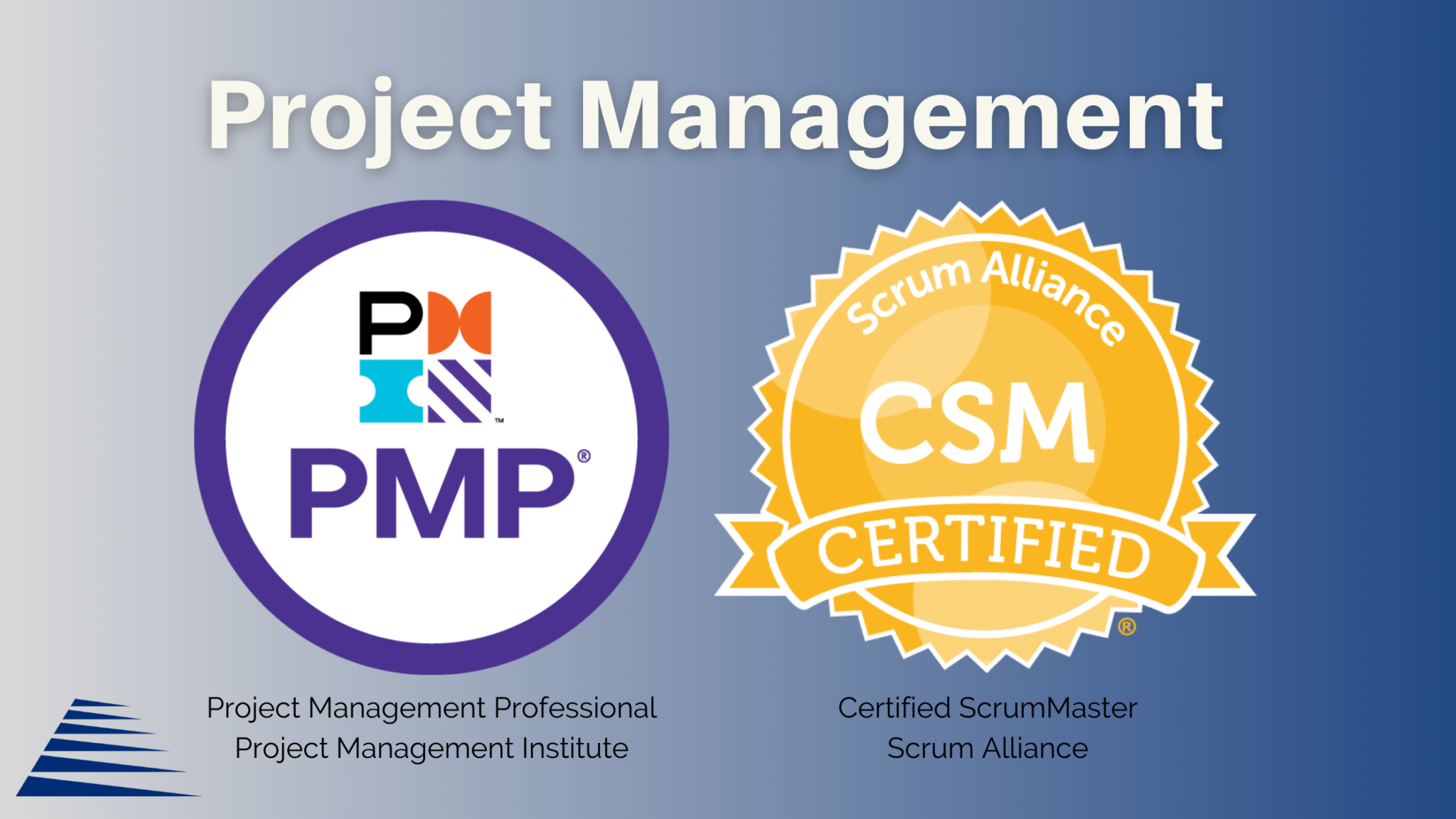
Project Management Professional (PMP) Certification
The Project Management Professional (PMP) certification assesses project leadership skills through predictive (waterfall), agile, and hybrid approaches. To earn a PMP certification, candidates must meet the following requirements: a four-year degree, 36 months of experience leading projects, and 35 hours of project management education/training or CAPM Certification; or, a high school diploma or an Associate's degree, 60 months of experience leading projects, and 35 hours of project management education/training or CAPM certification.
PMP Certification At-A-Glance:
Skills tested: The PMP exam tests skills in the following areas: people, process, and business environment. The exam covers conflict management, leadership, team performance, training, negotiation, project execution, budget and resource management, schedule management, product/deliverable management, scope management, project compliance, business environment changes, organization change, and more.
Certification process: To earn the PMP certification, candidates must apply to take the exam to validate their project management experience and education. Once the application is accepted, candidates must pass the PMP Exam — a 180 question, multi-choice exam. The exam fee is $405 USD for a PMI member and $555 USD for a non-member. After being awarded the PMP certification, candidates must maintain their certification by engaging in professional development through the Project Management Institute. Renewal is required every three years.
Benefits: The PMP certification is the top-ranked project management certification in North America, according to CIO Magazine. Additionally, PMP holders’ salary in the U.S. is 25% higher than those without the certification, according to PMI’s most recent Project Management Salary Survey.
Jobs you can get with the PMP certification:
- Senior Project Manager
- IT Project Manager
- Technical Project Manager
- Professional Services Project Manager
- Engineering Manager
- Delivery Project Manager
Certified ScrumMaster (CSM)
The Certified ScrumMaster (CSM) certification tests candidates’ ability to understand Scrum values, principles, and practices. Through the required training, candidates will learn the Scrum framework and gain an understanding of team accountabilities, events, and artifacts. Candidates with the CSM certification validate their skills to help businesses innovate faster, move from idea to delivery more quickly, drive higher customer satisfaction, and increase employee morale through the utilization of the Scrum framework.
CSM IT Certification At-A-Glance:
Skills tested: The CSM certification assesses skills related to the understanding of Scrum and Agile, Scrum theory, Scrum values, Scrum team, ScrumMaster, Scrum events, and Scrum artifacts. Scrum Alliance’s content outline breaks down these domains further.
Certification process: To attain the CSM certification, candidates must complete a live online or in-person CSM course; the courses are taught by a verified CSM trainer and offer at least 14 hours of interactive instruction. The prices of the courses vary by instructor, with the average price being around $500 USD. Once the course is completed, candidates must pass the 60-minute, 50 question CSM exam.
Benefits: ScrumAlliance, the issuer of the CSM certification, claims holding the Certified ScrumMaster certification gives candidates the opportunity to demonstrate their knowledge of Scrum; guides their team to effectively use Scrum and understand why Scrum values are so important; increases career opportunities and expands their professional community; and improves leadership skills and ability to influence organizational change. According to Indeed, 72% of job seekers said “(helping) career progression” was the biggest reason for earning their CSM certification.
Jobs you can get with the CSM certification:
- Scrum Master
- Software Engineer
- Business Analyst
- IT Business Analyst
- Project Manager
- IT Project Manager
- Cloud Software Architect
- Application Architect
- Technical Product Manager
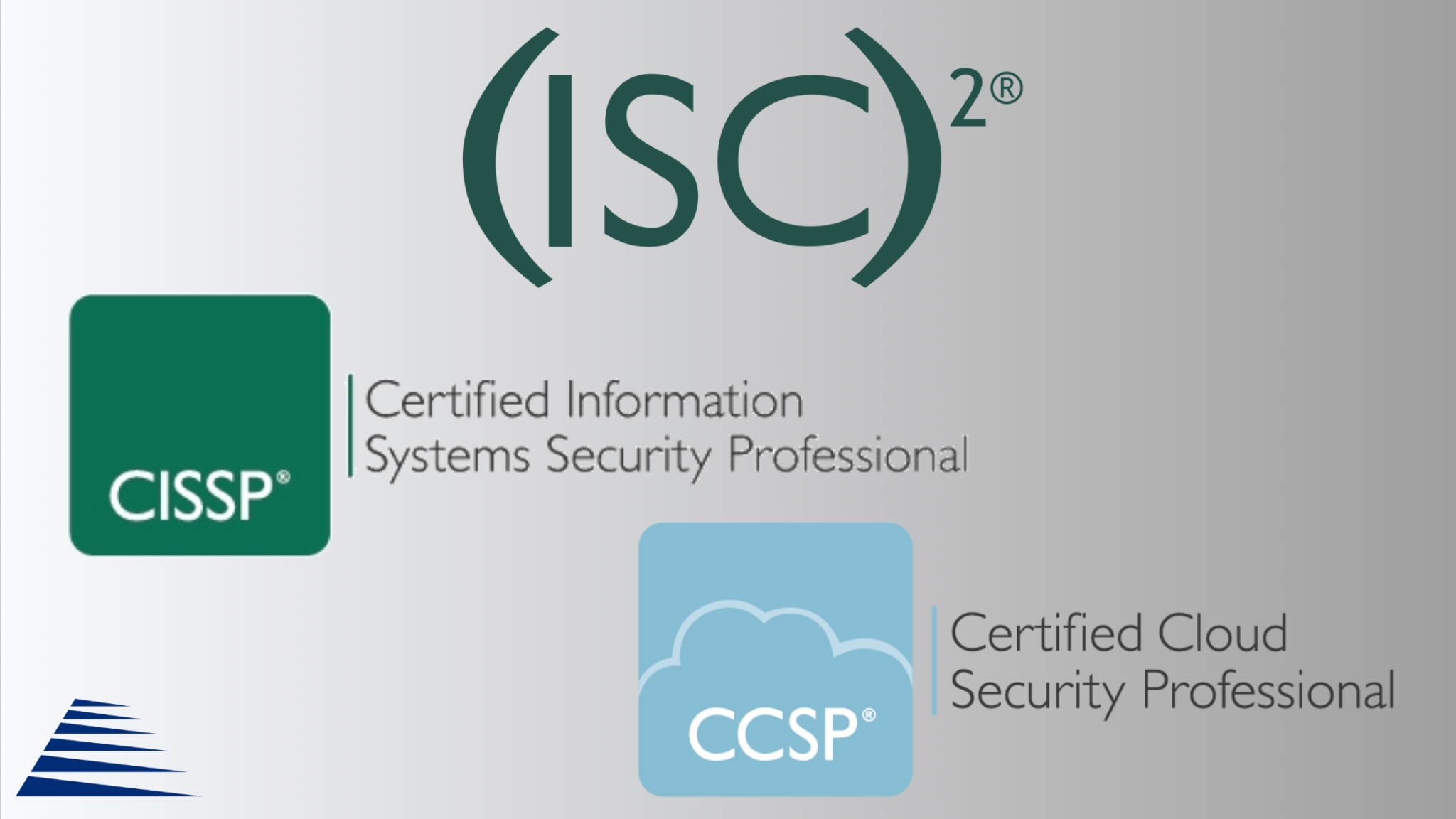
Certified Information Systems Security Professional (CISSP)
The Certified Information Systems Security Professional (CISSP) certification validates the skills it takes to effectively design, implement, and manage a cybersecurity program. Candidates pursuing a CISSP should have the expertise and in-depth knowledge of cybersecurity strategy and implementations.
CISSP IT Certification At-A-Glance:
Skills tested: To attain the CISSP certification, candidates should have expertise in the following eight security domains: security risk and management, asset security, security architecture and engineering, communication and network security, identity and access management (IAM), security assessment and testing, security operations, and software development security.
Certification process: To qualify for this IT certification, candidates must pass the CISSP exam and have a minimum of five years of work experience in one of the eight domains listed above. The exam consists of 100-150 questions with a three hours time limit and is available in English, Chinese, Japanese, French, German, Korean, Spanish - Modern, and Brazilian Portuguese. Once the exam is passed, the candidate must complete the endorsement process; this includes agreeing to the (ISC)² Code of Ethics and paying their first annual maintenance fee of $125 USD.
Benefits: The CISSP certification is accredited, recognized, and endorsed by leading organizations around the world. According to (ISC)², “cybersecurity professionals who earn the CISSP are among the most sought-after security experts in the world.”
Jobs you can get with a CISSP certification:
- Chief Information Officer
- Chief Information Security Officer
- Director of Security
- IT Director/Manager
- Security Systems Engineer
- Security Analyst
- Security Manager
- Security Auditor
- Security Architect
- Security Consultant
- Network Architect
Why Get the CISSP Certification?
Recruiter Insight — Andrew Leeson, Senior Executive Recruiter
“With the importance of IT Security being vital to organizations in today’s world, a CISSP certified professional stands out when reviewing interested candidates’ backgrounds for IT Security opportunities.”
Recruiter Insight — Joanna Kimionakis, Senior Executive Recruiter
“Right now, [CISSP] is huge. This certification shows you are up to date with the newest solutions to cyber security and hacks, [and have the] knowledge of latest security threats and trends. Having this shows you are an expert in security and this certification is only obtained by highly experienced professionals.”
Certified Cloud Security Professional (CCSP)
The Certified Cloud Security Professional (CCSP) certification is for IT and information security leaders that want to prove their expertise in cloud security architecture, design, operations, and service orchestration. The CCSP certification is awarded by (ISC)², the same organization as CISSP. This certification shows candidates’ technical expertise in best practices, policies, and procedures in the cloud.
CCSP IT Certification At-A-Glance:
Skills tested: The CCSP certification exam tests the skills in the following domains: cloud concepts, architecture, and design; cloud data and security; cloud platform and infrastructure security; cloud application security; cloud security operations; and legal, risk, and compliance.
Certification process: Similar to the CISSP certification, to qualify for the CCSP certification candidates must pass the exam and have a minimum of five years of IT work experience, of which three must be in information security, and at least one year in one or more of the domains listed above. Recipients of the CCSP certification must then complete the endorsement process of agreeing to the Code of Ethics and paying the $125 USD annual maintenance fee.
Benefits: Just like the CISSP certification, the CCSP is highly accredited, recognized, and endorsed by leading organizations. Certification Magazine lists the CCSP certification among the top 75 certifications in 2021, ranking it as the number one IT certification professionals plan to take to advance their careers.
Jobs you can get with a CCSP certification:
- Enterprise Architect
- Security Administrator
- Systems Engineer
- Security Architect
- Security Consultant
- Security Engineer
- Security Manager
- Systems Architect
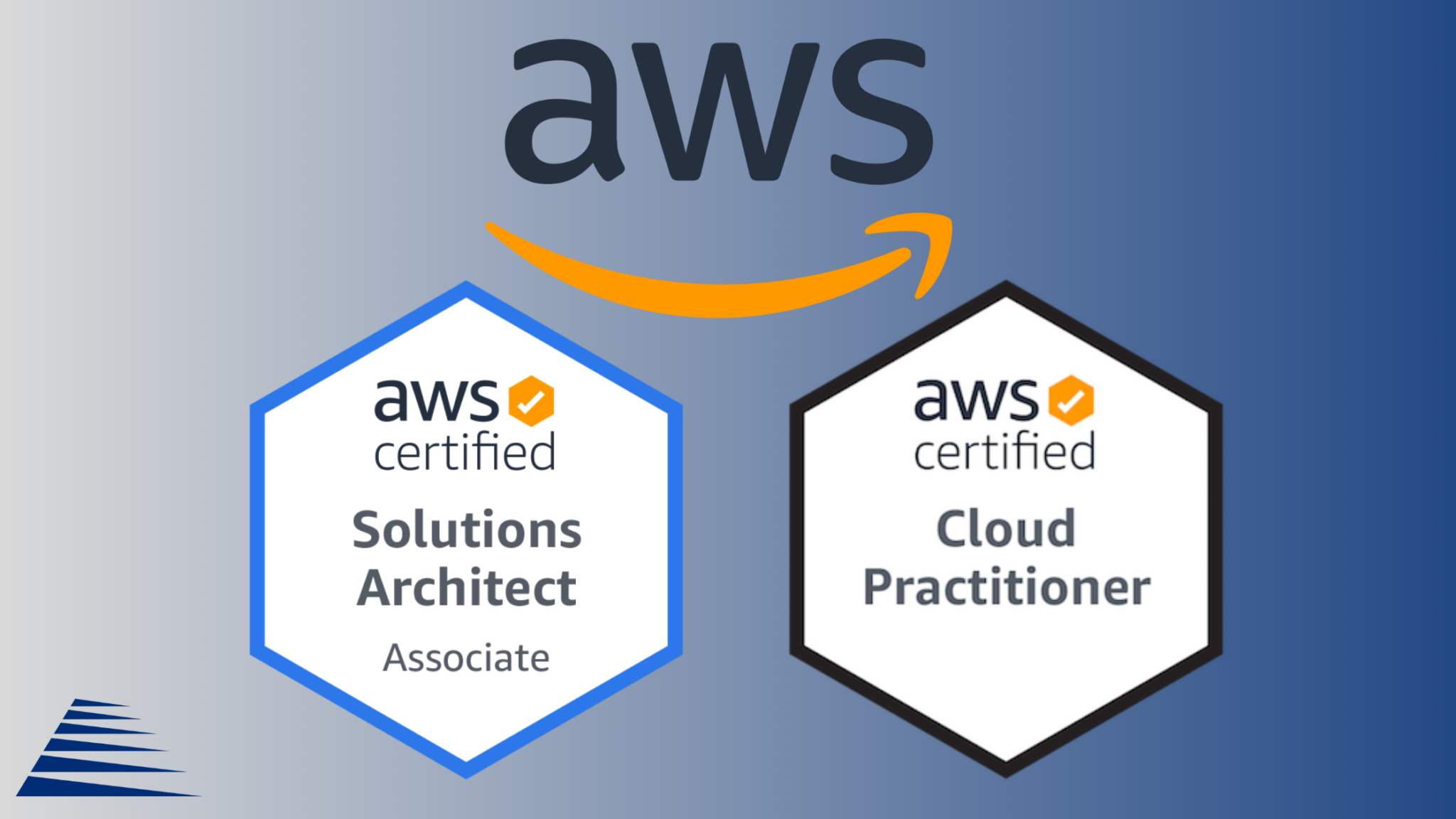
AWS Certified Solutions Architect - Associate
The AWS Certified Solutions Architect - Associate certification is “intended for individuals who perform a solutions architect role and have one or more years of hands-on experience designing available, cost-efficient, fault-tolerant, and scalable distributed systems on AWS.” Candidates pursuing this IT certification should have at least one year of hands-on experience designing secure, high-performing, cost-effective, and scalable systems using AWS services.
AWS Certified Solutions Architect - Associate IT Certification At-A-Glance:
Skills tested: The AWS Certified Solutions Architect - Associate certification exams test the knowledge of how to architect and deploy secure and robust applications on AWS technology; the ability to define a solution using architectural design principles based on customer requirements; and the ability to provide implementation guidance based on best practices to the organization throughout the life cycle of the project.
Certification Progress: The AWS Certified Solutions Architect - Associate certification is a 130-minute exam consisting of 65 multiple choice or multiple response questions. The certification exam costs $150 USD and can be taken at a testing center or online. It is available in English, Japanese, Korean, and simplified Chinese.
Benefits: Having the AWS Certified Solutions Architect - Associate certification shows employers you have the validated skills to architect and deploy available, cost-efficient, fault-tolerant, and distributed systems on AWS. According to Global Knowledge, the average salary of an IT professional with this certification is $130,883 USD - which is nearly 25% higher than their non-certified counterparts. As cloud technology continues to increase in popularity, those with the AWS Certified Solutions Architect - Associate certification will be ahead of the game, and stand out from the stack.
Jobs you can get with an AWS Certified Solutions Architect certification:
- AWS Solutions Architect
- Cloud Solutions Architect
- Cloud Architect
- Operations Engineer
- Cloud Application Product Owner
- Technical Release Manager
- Systems Administrator
AWS Certified Cloud Practitioner
The AWS Certified Cloud Practitioner certification validates skills related to implementing cloud initiatives, cloud fluency, and foundational AWS knowledge. AWS recommends candidates have at least six months of exposure to the AWS Cloud; basic understanding of IT services and their uses in the AWS Cloud platform; and knowledge of core AWS services and use cases, billing and pricing models, security concepts, and how cloud impacts a business.
AWS Certified Cloud Practitioner IT Certification At-A-Glance:
Skills tested: The certification exam tests a candidate’s ability to complete the following tasks: explain the value of the AWS Cloud; understand and explain the AWS shared responsibility model; understand security best practices; understand AWS Cloud costs, economics, and billing practices; describe and position the core AWS services, including compute, network, databases, and storage; and identify AWS services for common use cases.
Certification process: To earn the certification, candidates are required to pass the AWS Certified Cloud Practitioner Exam (CLF-C01), a 90-minute exam consisting of 65 multiple choice and multiple response questions. The exam costs $100 USD and is proctored online or in-person at a testing center. It is available in English, Indonesian (Bahasa), Japanese, Korean, and Simplified Chinese. The certification is valid for three years.
Benefits: As one of the cheaper certifications, the AWS Certified Cloud Practitioner credential certifies your understanding of cloud computing. As more companies transition to using cloud systems and services, this IT certification will continue to rise in demand for employees.
Jobs you can get with an AWS Certified Cloud Practitioner certification:
- Developer
- Solutions Architect
- DevOps Engineer
- Network Administrator
Why Get the AWS Certified Cloud Practitioner Certification?
Recruiter Insight — Jason Parker, Senior Executive Recruiter
“Having an AWS Certification is highly recommended because it’s the most widely used technology. More and more companies are moving to the cloud platform and AWS is certainly the most recognized leader of cloud service providers. Potential employers want to see [candidates’] expertise by getting the certification, and will also get [candidates] a better paycheck in the long run.”
As the demand for IT certifications grows, employers are going to be looking for candidates that have proven their expertise and can solve problems businesses are experiencing today. Candidates with IT certifications are positioned to get hired fast by being more qualified than their uncertified counterparts; being certified can also increase their salary, and ensure job security as businesses expand their IT needs. When considering which IT certification to get, candidates should consider the skills tested and the certification process, and ultimately choose the IT certification that best suits their current skillset and their career goals. Updating their resume and/or LinkedIn profile with the relevant training and certifications is a great way for IT professionals to stand out from the stack in their next job hunt. As experts in the IT space, Blue Signal is equipped to help both clients and candidates navigate these important decisions surrounding IT certifications, and how to combat the talent shortage with knowledge and strategy. Contact us today to learn more about how we can partner on your next IT search.
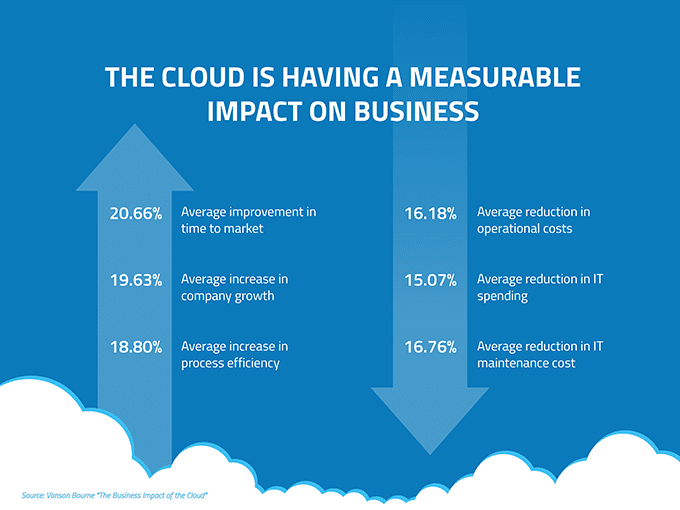
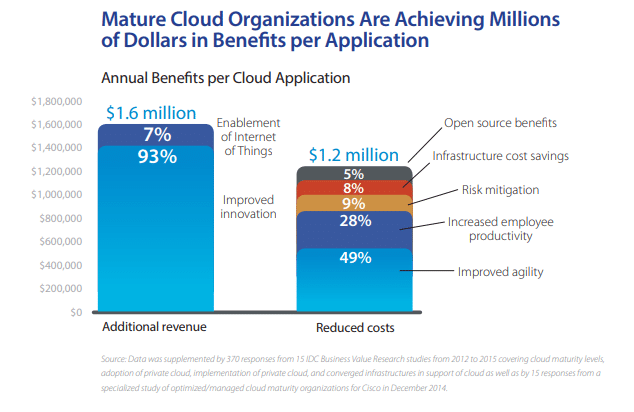

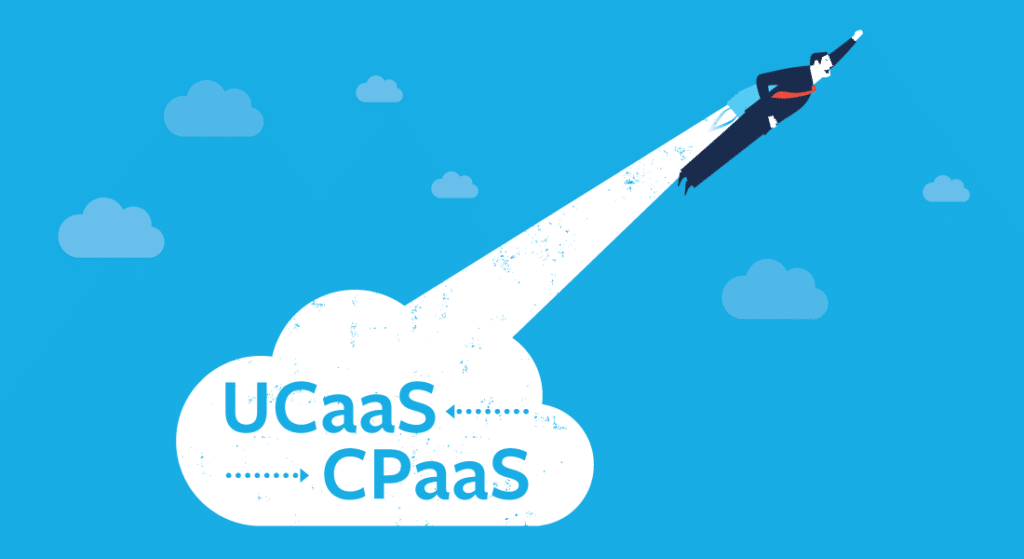
 Who is driving?
Who is driving? 

 Unified communications customers expect their salespeople to be experts in the products and services they sell. These products sometimes have vastly different technical specs, and each company’s product portfolio has dozens of different features.
Unified communications customers expect their salespeople to be experts in the products and services they sell. These products sometimes have vastly different technical specs, and each company’s product portfolio has dozens of different features.